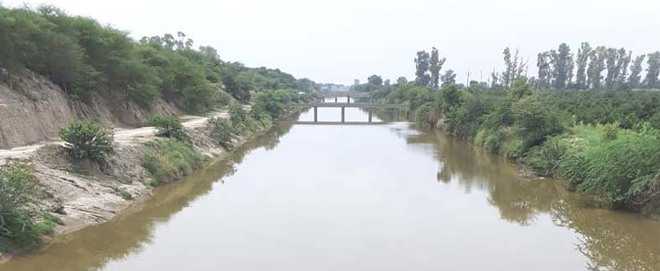Water unfit for intake in 132 villages of Fazilka
Praful Chander Nagpal
Fazilka, August 4
The subsoil water in nearly 132 villages of border district has become unfit for human consumption and agricultural purposes. Reason: the untreated water of major drains flows to Fazilka, a low-lying area, and stagnates, contaminating water through seepage.
Acting on a farmer’s plea, the National Green Tribunal (NGT) has directed the Deputy Commissioner, Fazilka, Punjab Pollution Control Board, Punjab Water Supply and Sewerage Board and Local Bodies Department to submit a “factual and action-taken report” by August 25. “The meeting of stakeholders has been summoned on August 6 to assess the situation,” said Fazilka DC Manpreet Singh.
Vikram Ahuja, a local progressive farmer, has claimed that 21 major drains and many sub-drains carrying sewage from various parts of the state have contaminated subsoil water of these villages. He provided the counts of total dissolved solids (TDS), fecal coliform (F Coli) and total suspended solids (TSS) gathered under the RTI Act for the 21 drains.
Ahuja claimed that various water-borne diseases have been causing havoc in border villages. Frequent miscarriages among women and children born with deformities are common in most of the border villages along the Sutlej as residents have left with no option but to consume contaminated water.
Rohit Singla, SDO, PPCB, said the Board is likely to act against the Municipal Council for the “faulty” sewerage treatment plant set up at Fazilka.
The petitioner stated that polluted water remains stagnant at a moat ‘Defence Ditch Drain’, dug along the Pakistan border, resulting in seepage to subsoil layers. He said according to government regulations, the permissible TDS limit in water is less than 500 mg per litre.
Local residents too have demanded to treat water to make it fit for consumption and irrigation purposes.
CAUSE OF CONCERN
- Drain TDS count
- Old Fazilka 3,317
- Jalalabad-Mauzam 3,680
- Teja Ruhela 3,992
- Ladhuka 3,992
Permissible limit: <500
* TDS: Total dissolved solids (in mg per litre) Source: RTI info










